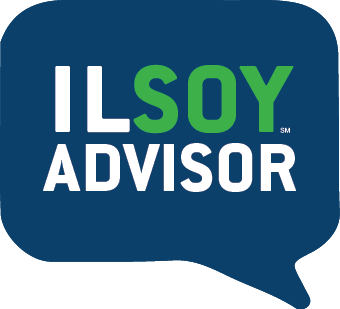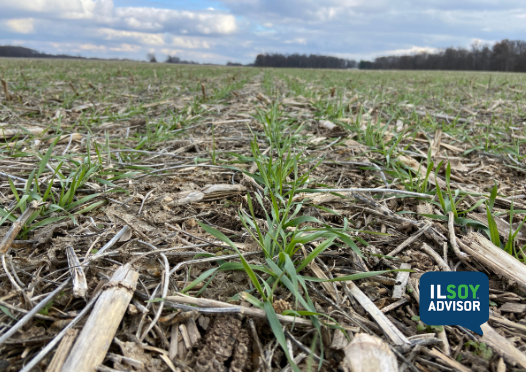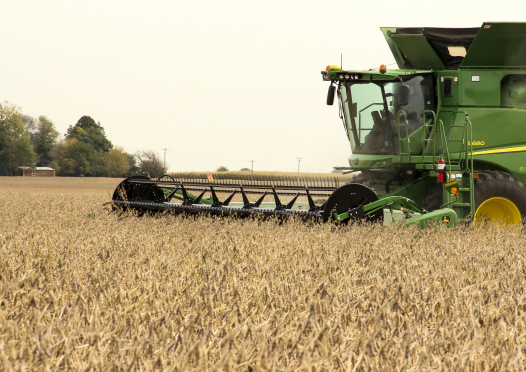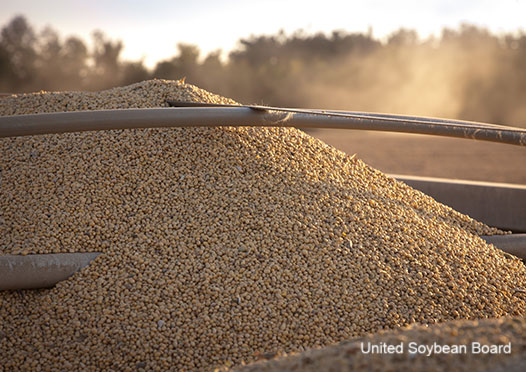ILSOYADVISOR POST
Agronomy: Can Bees Increase Soybean Yields?
In some crops bees are necessary for pollination and seed production. In corn single tassels pollinate ears on multiple ears on multiple plants. Soybeans, though, are self-pollinated and flowers mostly pollinate themselves. But will bees improve pollination and final pod set?
As an agronomist, I receive really interesting questions from farmers across Illinois. Here is just one of the most recent questions that I received: “Can bees increase soybean yields?” This has been an ongoing question and has been researched in past years.
In order to help me sort through the online hype and data to answer this question, I interviewed a leading industry soybean breeder for his take on this question, and here is what he had to say: “I do not know if bees can contribute to yield; however, there are a few facts that I do know. Bees are pollinators and can be active in soybean fields. When I have used soybean male steriles in fields, bees have not contributed to yield much thus, most of the time, there are very few pods on these plants. Cutter bees are more efficient pollinators of soybeans than honeybees. We do know that soybeans abort a lot of pods and flowers due to plant health or lack of pollination, but mostly I think it’s plant health, or how many seeds that plant can support. I guess it is possible that honeybees can increase yield, although I don’t think the yield increase is significant, but I have no data to back that up. If you have beehives near soybean fields, be careful when using insecticides during flowering.”
The following from a Corn and Soybean Digest article from 2013 gives some examples of studies from around the world that investigated bees and soybean yield. The article states “While all three (studies) showed yield improvements, they involved honey bees rather than the native bees O’Neal’s research found. Among the thousands of native bee species, some are more effective pollinators of specific plants than honeybees. It’s a challenge to link specific bees’ activities to the soybean plants and then to yield.”
On a similar note, if growers are worried about honeybee exposure to soybean insecticides at planting, you can use SuperFlow℠ offered by Burrus® to reduce dust off of seed treatments to decrease risk to pollinators, while lubricating planters. This is the same Bayer CropScience Fluency Agent that Canadian farmers have been required by Canada’s Pest Management Regulatory Agency (PMRA) to use on seed treated with various insecticides as of 2014. This is one contribution to improve honeybee health in Canada and could be an option for you on your farm in the United States.
Article originally appeared here.




Comments
Add new comment